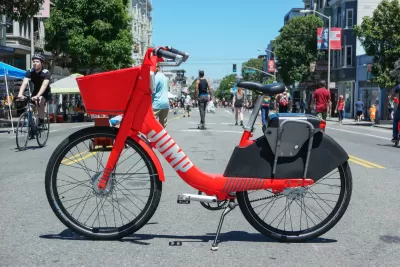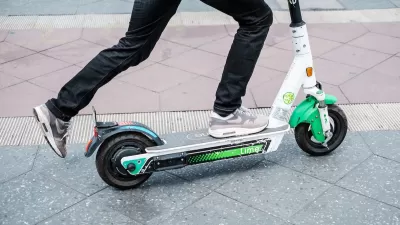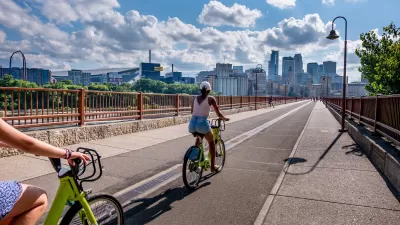Companies are looking to generate profits, but customers have come to expect low-cost, subsidized travel and raising prices will prove challenging.

Alana Semuels reports that shared mobility operators are facing a conundrum: how to start becoming profitable and meet the demands of stakeholders without losing the customers who have become used to cheap travel.
As these companies go public, the venture capital that allowed them to heavily subsidize travel options—by car, bike, and scooter—is disappearing. To turn a profit, they will have to raise prices, says Semuels:
[Sam] Korus, the analyst, thinks that shared scooter companies in particular are in trouble as subsidies come to an end. By his math, it costs scooter companies like Bird $2.55 per mile to rent dockless scooters to customers. Before they raised their prices, these companies were generating just $2.43 in revenue per mile, he says, meaning they will eventually have to raise prices to make money. But as they do, fewer people will use the service.
For some customers, purchasing their own devices is a more cost-effective option. Others will just stop using those services and revert to transportation modes they used before, such as walking or transit. Monthly passes or subscriptions are one strategy companies are considering to hold on to customers, and public subsidies are another possibility.
But the economic viability of shared mobility remains uncertain, says Semuels. "While we’re in an economic expansion at the moment, these companies appear particularly vulnerable to the threat of an economic slowdown. If another recession is coming, as observers like presidential candidate Elizabeth Warren have warned, consumers may be even less willing to pay for rides and other shared services once subsidies disappear."
FULL STORY: 'I'm Back to Riding My Own Bike.' Higher Prices Threaten Silicon Valley’s Mobility Revolution

Maui's Vacation Rental Debate Turns Ugly
Verbal attacks, misinformation campaigns and fistfights plague a high-stakes debate to convert thousands of vacation rentals into long-term housing.

Planetizen Federal Action Tracker
A weekly monitor of how Trump’s orders and actions are impacting planners and planning in America.

San Francisco Suspends Traffic Calming Amidst Record Deaths
Citing “a challenging fiscal landscape,” the city will cease the program on the heels of 42 traffic deaths, including 24 pedestrians.

Defunct Pittsburgh Power Plant to Become Residential Tower
A decommissioned steam heat plant will be redeveloped into almost 100 affordable housing units.

Trump Prompts Restructuring of Transportation Research Board in “Unprecedented Overreach”
The TRB has eliminated more than half of its committees including those focused on climate, equity, and cities.

Amtrak Rolls Out New Orleans to Alabama “Mardi Gras” Train
The new service will operate morning and evening departures between Mobile and New Orleans.
Urban Design for Planners 1: Software Tools
This six-course series explores essential urban design concepts using open source software and equips planners with the tools they need to participate fully in the urban design process.
Planning for Universal Design
Learn the tools for implementing Universal Design in planning regulations.
Heyer Gruel & Associates PA
JM Goldson LLC
Custer County Colorado
City of Camden Redevelopment Agency
City of Astoria
Transportation Research & Education Center (TREC) at Portland State University
Jefferson Parish Government
Camden Redevelopment Agency
City of Claremont





























